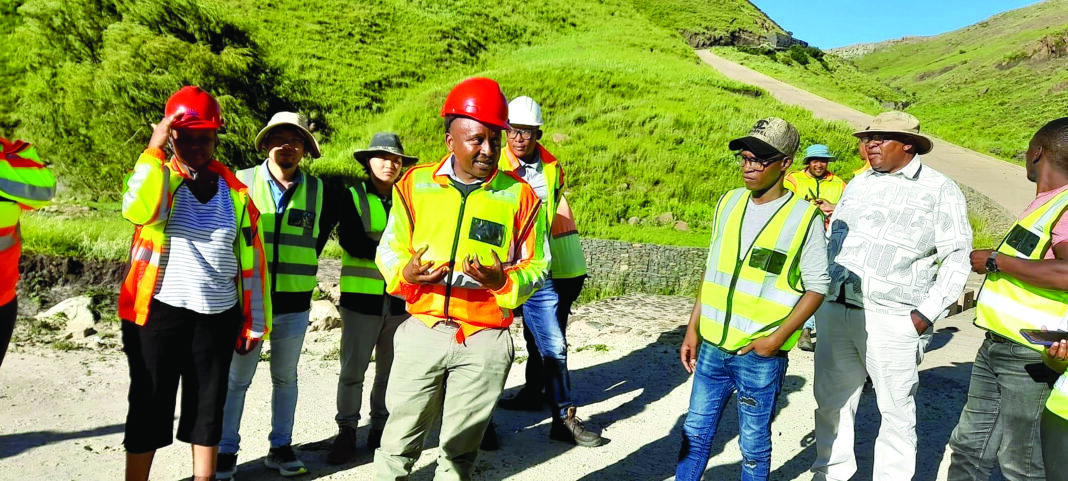Lehohlohonolo Motšoari
Several factors, including a 15-kilometer road extension and challenges in relocating affected community members, have contributed to the delay in completing the Marakabei to Monontša road construction project, Newsday has learned.
The project commenced in March 2019 with a scheduled completion time of 36 months, originally slated for March 2022. However, nearly two years later, construction is still underway, and the new completion date has been moved to October 2024.
Initially, the project aimed to upgrade the 55-kilometer gravel road from Ha Marakabei to the Monontša border post to an asphalt road. Additionally, plans included constructing the 82-meter-long Hololo Bridge and establishing a border post, with an initial budget estimated at around M900 million.
A recent media tour conducted by the Roads Directorate highlighted significant deviations from the original plan, potentially contributing to the project’s delays.
Masoabi Malunga, a resident engineer from SM Consulting Engineers supervising the construction by China Geo-Engineering Corporation, disclosed that the originally proposed 55-kilometer route had to be expanded to include additional segments. This extension has increased the total road length to 70 kilometers.
Moreover, Malunga highlighted that the delay in project completion has led to substantial cost implications for the government as the initial project cost of M900 million has since ballooned to M1.2 billion, according to Malunga.
“This expansion, includes the upgrade from Ha Mashoba, which passes through the Caledon area, to Phoku and joins the main road at Makhunoane, and a new 1-kilometer service road from Ha Napo to the Military camp. Our project now is budgeted at 1.2 billion and is projected to finish in October this year,” Malunga said during the media tour.
Other challenges were related to relocating affected households. An estimated 1000 families are believed to have been affected by the construction project.
“A lot of Monontša residents work in South Africa, and to relocate them we must first sensitise them about the processes involved including signing an agreement for relocation or reimbursing them.
“It is a process that takes time to find the residents, and in some cases we fail to meet with them completely. This means we have to wait until we find them.”
Malunga also expressed concerns about payment delays from the government, attributing them to the overall project delays.
He stated: “As I mentioned earlier, this is a government-funded project, financed solely from the annual budget. One would expect that, given the project’s worth of M1.2 billion and its expected duration of four years, the government would allocate M300 million annually over the four-year period, even considering the years affected by COVID-19. However, there was a financial setback from the government in effectively allocating funds as mandated by the project.”
On her part, the public relations manager of Roads Directorate, Nozesolo Matela further explained the funding challenges they experienced.
“When it is said in the national budget that a certain amount has been budgeted for large public works projects, we engage contractors to begin the work, only for the funds not to be released as promised per the budget speech, leading to contractors withholding progress certificates with complaints that they are unable to continue work without being paid,” Matela said.




